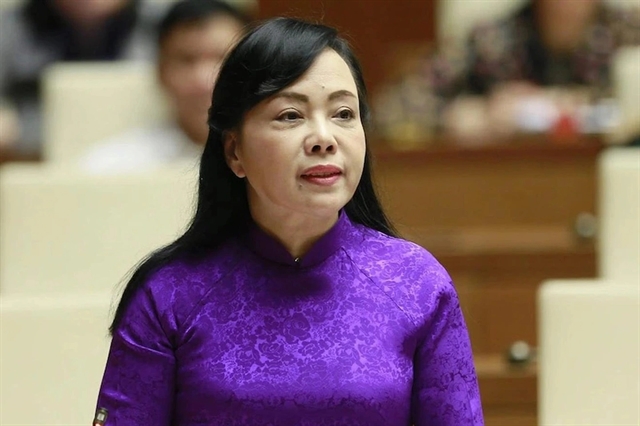 Life & Style
Life & Style

Every year at the end of July in Lunar calendar, locals of the capital’s Tạm Thương Alley held a festival to honour Queen Mother Ỷ Lan.
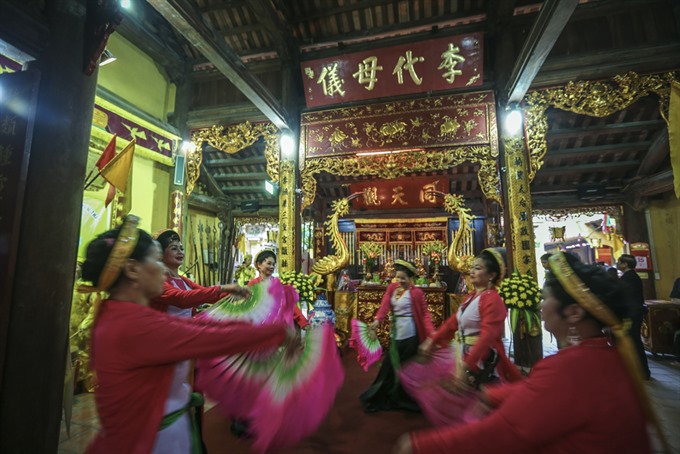 |
| Colourful: Women perform traditional dance during a ceremony at the Yên Thái Communal House. — VNA/VNS Photos Trọng Đạt |
Every year at the end of July in the Lunar calendar, locals of the capital’s Tạm Thương Alley hold a festival to honour Queen Mother Ỷ Lan at the downtown Yên Thái Communal House.
Ỷ Lan (unknown-1117) was of common origin and rose to wield significant power.
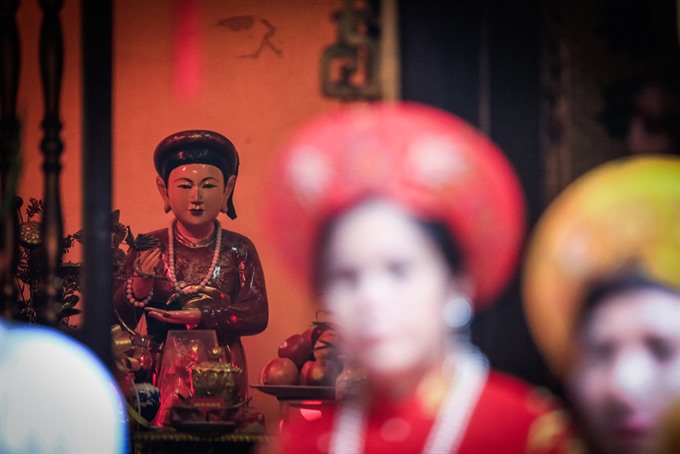 |
| Keeping watch: A statue inside the Yên Thái Communal House. The house is a place of worship for adherents to the Vietnamese mother goddess religion. |
Legend has it that King Lý Thánh Tông, at the age of 40, was not able to produce an heir. The royal family then visited numerous pagodas across the country to pray for a son. On their way back to the palace after one such visit, the king noticed Ỷ Lan, a common girl of Thổ Lỗi Village, now modern-day Gia Lâm District of Hà Nội.
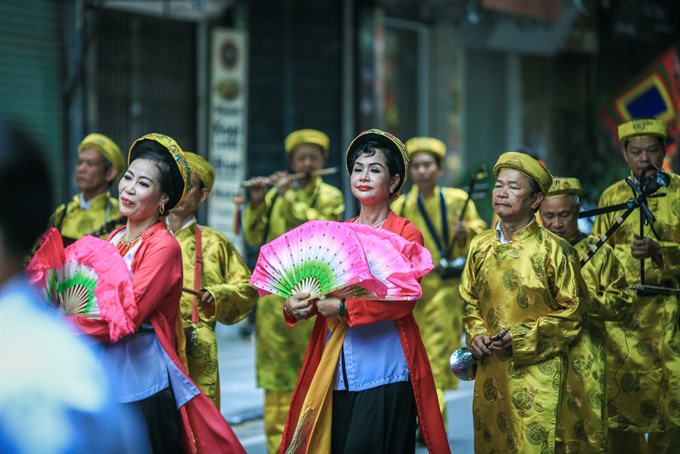 |
| Sound of music: Locals dressed in traditional clothes play numerous Vietnamese musical instruments during the festival. |
The king was impressed with Ỷ Lan, who at the time paid no mind to the royal escort. Lý Thánh Tông decided to take her in as his concubine and also gave her title Lady Ỷ Lan, which literally means “one who leans on magnolia,” to remember the first moment when he saw her.
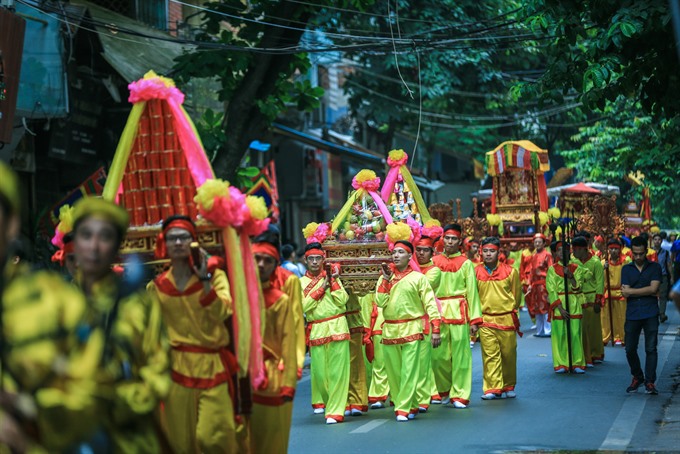 |
| Parade: Local people carry their offerings to Lady Ỷ Lan to the temple. |
Lady Ỷ Lan went down in Vietnamese history as one of the few women to hold official political power. She served twice as regent: once during the reign of her husband Lý Thánh Tông when he was leading a military campaign in the south and another in the beginning of the reign of her son King Lý Nhân Tông.
On both occasions, Ỷ Lan was regarded as a wise ruler who was admired by the people. She was also largely credited as the one who started the early propagation of Buddhism in Việt Nam. — VNS

